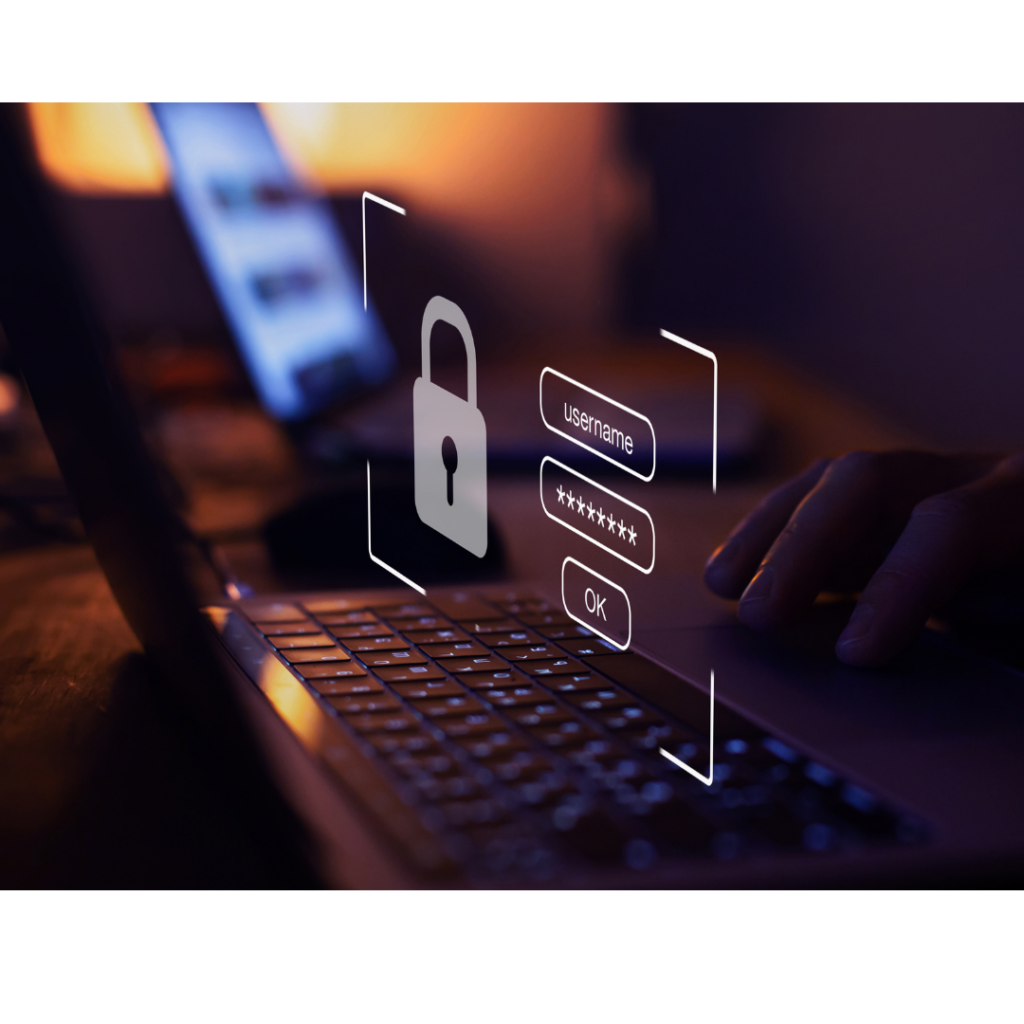The internet has become an indispensable part of our lives. We use it for work, communication, entertainment, and everything in between. But with this convenience comes a responsibility: protecting ourselves online. In this blog post, your one-stop-shop for “Internet Security 101,” we will equip you with the basic measures you can take to ensure your online safety and protect against hackers.
Why is Internet Security Important?
Imagine your computer as your home. You wouldn’t leave your front door wide open, would you? The same logic applies to your online world. Without proper internet security measures, you’re leaving your devices and data vulnerable to a range of threats, including:
- Hackers: Malicious criminals who can steal your personal information, like passwords and credit card details, or even take control of your devices.
- Malware: Short for “malicious software,” this includes viruses, spyware, and ransomware that can damage your devices, steal your data, or hold it hostage for a ransom.
- Phishing scams: Deceptive emails or websites designed to trick you into revealing your personal information.

By following some basic security practices, you can significantly reduce the risk of falling victim to these threats and keep your online world safe.
Your Internet Security Action Plan
Here are some key steps you can take to strengthen your online security:
1. Fortress of Solitude: Building Strong Passwords
Think of your passwords as the keys to your digital kingdom. Strong passwords are essential for keeping hackers out. Here’s how to create a secure password:
- Length is Key: Aim for at least 12 characters.
- Mix it Up: Combine uppercase and lowercase letters, numbers, and symbols.
- Avoid the Obvious: Don’t use personal information like birthdays or pet names, and steer clear of dictionary words.
- Uniquely Yours: Create unique passwords for each of your online accounts.
2. Password Management Made Easy
Juggling multiple unique passwords can be a pain. That’s why using a password management app or program is a secure and user-friendly tool to utilize. These password manager programs store all your passwords in one encrypted location, accessible with a single master password you create. This eliminates the need to remember countless passwords and ensures you’re using strong, unique ones for every account.

3. Software Updates: Your Digital Armor
Software updates often contain critical security patches that fix vulnerabilities hackers can exploit. Here’s how to stay up-to-date:
- Enable Automatic Updates: Whenever possible, configure your devices and software to download and install updates automatically.
- Schedule Regular Checks: If automatic updates aren’t available, set calendar reminders to check for updates manually.
4. Guarding the Gate: Be Wary of Email and Website Legitimacy

Phishing scams are a cunning way for hackers to steal your information, causing havoc in your life, and often having a financial impact. Being aware and having security measures in place will help. Learning what to be aware of is your first line of defense. Here’s how to spot them:
- Suspicious Sender Addresses: Be cautious of emails from unknown senders or addresses that don’t match the sender’s name.
- Sense of Urgency: Phishing emails often create a sense of urgency or panic to pressure you into clicking on a link or providing personal information.
- Too-Good-To-Be-True Offers: Beware of emails offering unbelievable deals or prizes.
- Grammatical Errors and Typos: Legitimate businesses typically have professional emails free of errors.
- Hover Over Links (Without Clicking): Many email platforms allow you to hover over a link to see the actual destination URL before clicking.
Building a Firewall: The Importance of Internet Security Software
A firewall acts as a digital bouncer for your device, carefully screening incoming and outgoing traffic on the internet. Think of it as a fortress wall safeguarding your data and systems. A good firewall can help prevent:
- Unauthorized Access: Firewalls can block attempts by hackers to remotely access your device and steal your information.
- Malicious Software Intrusion: Firewalls can help identify and block malware, such as viruses and spyware, before they can infect your device.
- Data Leaks: Firewalls can help regulate the flow of data from your device, preventing sensitive information from being inadvertently transmitted to unauthorized sources.
There are two main types of firewalls:
- Hardware Firewalls: These are standalone devices that physically connect between your modem and router, offering a strong layer of protection for your entire network.
- Software Firewalls: These are programs installed directly on your devices, providing a good first line of defense. Many internet security software suites include a built-in software firewall.
Choosing the Right Security Software
With a vast array of internet security software options available, selecting the right one can be overwhelming. Here are some key factors to consider:
- Your Needs: Evaluate your individual needs and usage patterns. For basic protection, a software suite with antivirus, anti-malware, and firewall capabilities might suffice. If you engage in frequent online transactions or manage sensitive data, consider a more comprehensive suite that includes features like:
- Phishing Protection: Helps identify and block fraudulent emails and websites.
- Parental Controls: Allows you to manage your children’s online activity.
- VPN Encryption: Provides an extra layer of security for public Wi-Fi networks.
- Device Compatibility: Ensure the software you choose is compatible with your operating system (Windows, Mac, Android, iOS) and devices (computers, laptops, tablets, smartphones).
- System Requirements: Consider the impact the software will have on your device’s performance. Some suites require more processing power and memory than others.
- User Reviews and Ratings: Read reviews and check ratings from independent sources to get a sense of the software’s effectiveness and user experience.
NKTelco: Your Trusted Partner in Online Safety
At NKTelco, we understand the importance of online safety. That’s why we offer a range of security solutions to keep you protected, including:
- NKTelco Secure Internet: Our comprehensive internet safeguards protect your devices with robust antivirus and anti-malware protection, a powerful firewall, advanced spam filtering, and you can choose the package that best suits your needs and budget.
- Expert Support: Our knowledgeable customer service team is always available to answer your questions about internet security, recommend solutions, and help you troubleshoot any security concerns you may have. We’re here to guide you on your journey to a safer online experience.

Conclusion
The internet is a vast and ever-evolving landscape. By following the basic security measures outlined above and partnering with a trusted provider like NKTelco, you can significantly enhance your online safety and protect yourself from the ever-present threats lurking in the digital world. Remember, internet security is an ongoing process. Stay informed about the latest threats, keep your software updated, and adopt safe browsing habits to navigate the online world with confidence. NKTelco is here to empower you with the tools and resources you need for a secure and enjoyable online experience.

